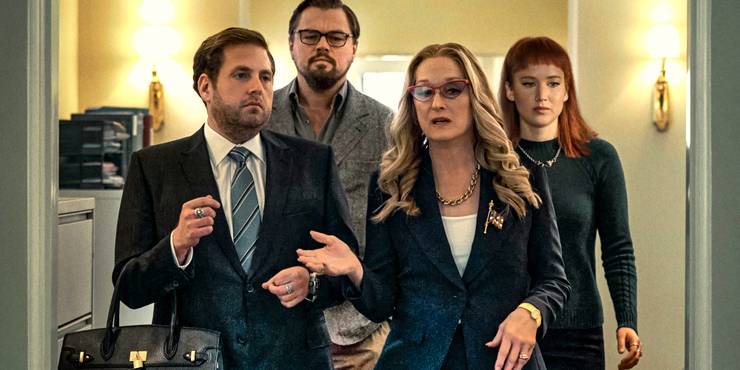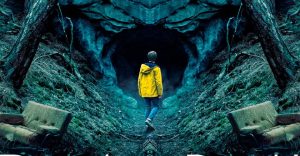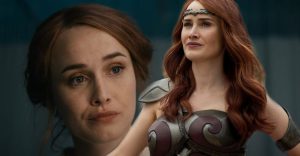Don’t Look Up Director Adam McKay Explains Movie’s Weird Sudden Edits

Director Adam McKay explains why Don’t Look Up has so many strange edits involving stock footage and other images. With Don’t Look Up, the man behind Vice and The Big Short returns to the awards conversation in a major way with a movie that just might be the most divisive one of his career. Don’t Look Up arrived on Netflix at the very end of 2021 and swiftly became one of the streamer’s most watched films ever. Its star-studded cast – which includes Leonardo DiCaprio, Jennifer Lawrence, Timothée Chalamet, and Meryl Streep – no doubt helped pull in viewers, though the intense online debate that emerged regarding its plot probably helped too.
Don’t Look Up focuses on scientists Randall Mindy (DiCaprio) and Kate Dibiasky (Lawrence), whose lives are turned upside down when they discover a comet that is headed towards Earth. In six months, it’ll hit the planet and kill all of humanity unless the powers that be come together to stop it. However, Randall and Kate are stunned to realize that, instead of acknowledging just how grave a threat the comet poses, no one seems to care. In fact, Don’t Look Up‘s title refers to the slogan adopted by the President (Streep) in an attempt to distract people from their impending doom.
Like all of McKay’s movies, Don’t Look Up has a snappy editing style that involves sudden cuts and stock footage of animals and landscapes interspersed throughout. Viewers might’ve been baffled by the decision, but as McKay explained in a recent interview with Deadline, it was intentional. Editor Hank Corwin followed McKay’s plan, which was to make a movie that changed genres midway through. “The world we’re living in now doesn’t adhere to a genre as much as it use to, shifting from farcical comedy to a tragedy to a drama,” McKay said.

Don’t Look Up has inspired a lot of heated responses, particularly from those who dislike the film. Many believe the story of the comet – which is an allegory for climate change, inspired by McKay’s own mounting fears – lacks the subtlety to truly make an impact. Some might say McKay’s trick with Don’t Look Up‘s genre and editing keeps with that, though no one can claim he didn’t commit to what he set out to do. For his part, McKay has welcomed the divisive reactions to Don’t Look Up, as he wants everyone to really talk about it.
Don’t Look Up isn’t a movie that is easy to pin down, and that is what makes it so interesting. It is seen in everything from its shifting tone to its editing, and it seems likely that Don’t Look Up will continue to be debated for some time. It might not be the most beloved of McKay’s movies, but as seen through his comments about its genre, it’s clear he managed to achieve exactly what he wanted with it. That alone is a pretty remarkable feat.
Source: Deadline
About The Author

















